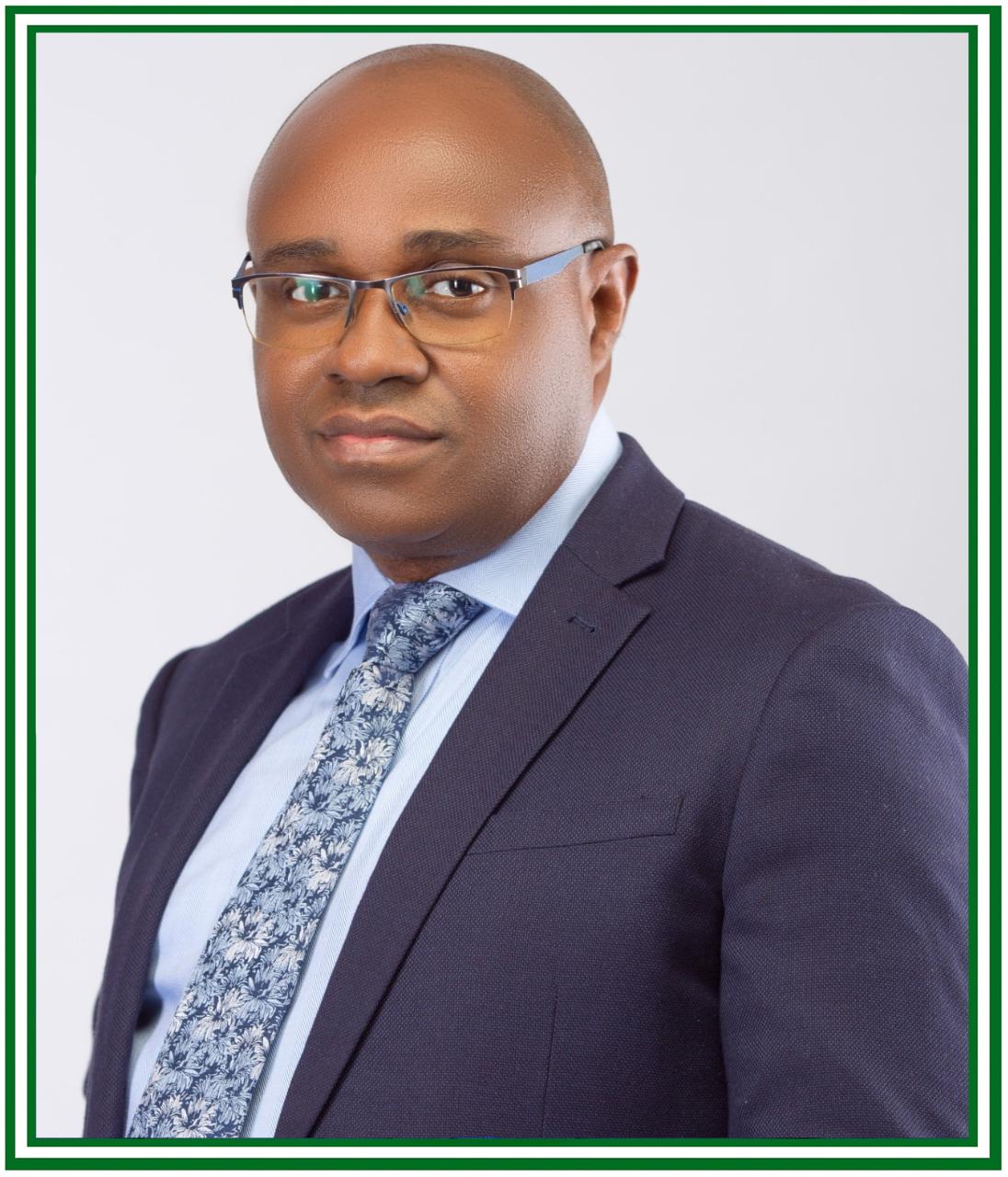Dr. Ikpaya David Ikpaya is a distinguished Satellite Engineering professional with over 23 years of experience in the space industry, specializing in Space Mission Development, Ground Station Operations and Management, and Spacecraft Payload Systems related to earth observation and remote sensing.
A 2017 Rutherford Fellow, Dr. Ikpaya was recognized with the 2022 Research Impact Awards Topical Prize for his contributions to clean energy research and was a finalist in the 2024 Study UK Alumni Awards under the Science and Sustainability category. He earned his B.Sc. in Physics from the University of Calabar in Nigeria in 2000, where he received the Best Graduating Student Award. He later obtained an M.Sc. in Satellite Engineering with Distinction and a PhD in Engineering and Physical Sciences with a focus on Spacecraft Engineering from the University of Surrey in the UK, completing his studies in 2008 and 2014, respectively, under a scholarship from the National Space Research and Development Agency (NASRDA).
Dr. Ikpaya was a pioneering member of the Know-How Technology and Transfer (KHTT) team that contributed to the design, construction, and launch of NigeriaSat-1, Nigeria’s first satellite, at Surrey Satellite Technology Limited (SSTL) from 2001 to 2003. In this role, he excelled as a Mission Design and Analysis / Satellite Systems Engineer, gaining substantial expertise in spacecraft engineering. He led the Mission Control Ground Station (MCGS) team in Abuja from 2004 to 2006, where he initiated vital imaging campaigns and responded to significant global disasters, including the Southern Asian Tsunami of 2004 and Hurricane Katrina in 2005, through the Disaster Monitoring Constellation International Imaging (DMCii).
In 2006, Dr. Ikpaya played a key role in the design, build, and launch of NigeriaSat-2 and NigeriaSat-X microsatellites under a subsequent KHTT programme at SSTL, specializing in Satellite Payload Engineering from 2006 to 2009. He also developed a laboratory prototype for a compact Spatial Heterodyne Atmospheric Carbon-dioxide Spectrometer (SHACS) during his PhD research. His innovative work on SHACS earned him a two-year Commonwealth Rutherford Fellowship from March 2018 to February 2020 at the University of Surrey, where he advanced the development of this groundbreaking atmospheric monitoring instrument capable of measuring total-column CO2 concentrations in both spaceborne and terrestrial applications as part of climate change mitigation efforts.
Dr. Ikpaya has received numerous awards throughout his career, including the Nigerian Society of Engineers (NSE) Chairman’s Merit Award in 2011, the Centre for Satellite Technology Development (CSTD) Outstanding Service Award in 2011, and a Letter of Commendation from the Director General/Chief Executive in 2022. He is slated to become a Fellow of the Nigerian Institution of Space Engineers (NISEng) in 2025.
Currently, Dr. Ikpaya serves as the Director of the Engineering and Space Systems at NASRDA and is an Assistant Professor at the Institute of Space Science and Engineering (ISSE), affiliated with the African University of Science and Technology (AUST) in Abuja, Nigeria. His research interests include the delivery of Earth Observation satellite missions and the development of spaceborne optical payload instruments. A prolific author and co-author of scientific articles, he is also a frequent reviewer for journals affiliated with international societies such as the SPIE – Society of Photo-Optical Instrumentation Engineers, and holds memberships in several professional organizations, including the Nigerian Institute of Physics (NIP), the Royal Meteorological Society (RMets), the Institute of Electrical and Electronics Engineers (IEEE), the Institution of Engineering and Technology (IET), the Nigerian Society of Engineers (NSE), and the Nigerian Institution of Space Engineers (NISEng).


